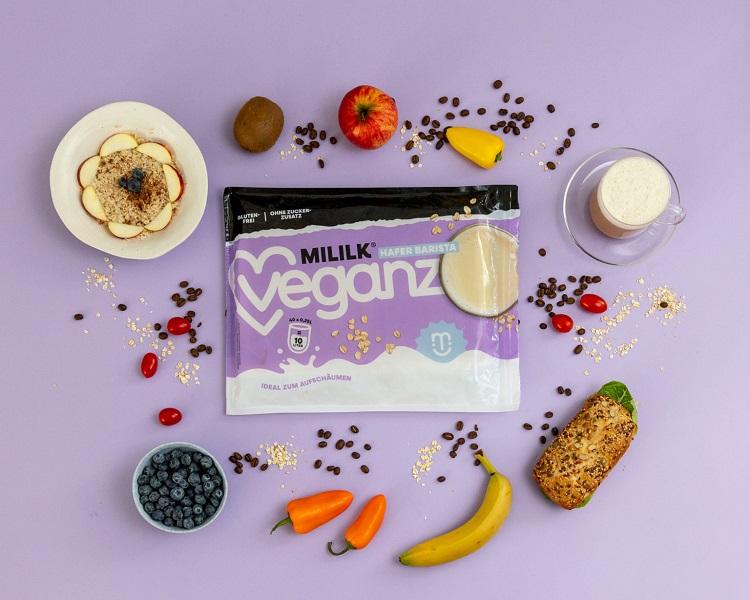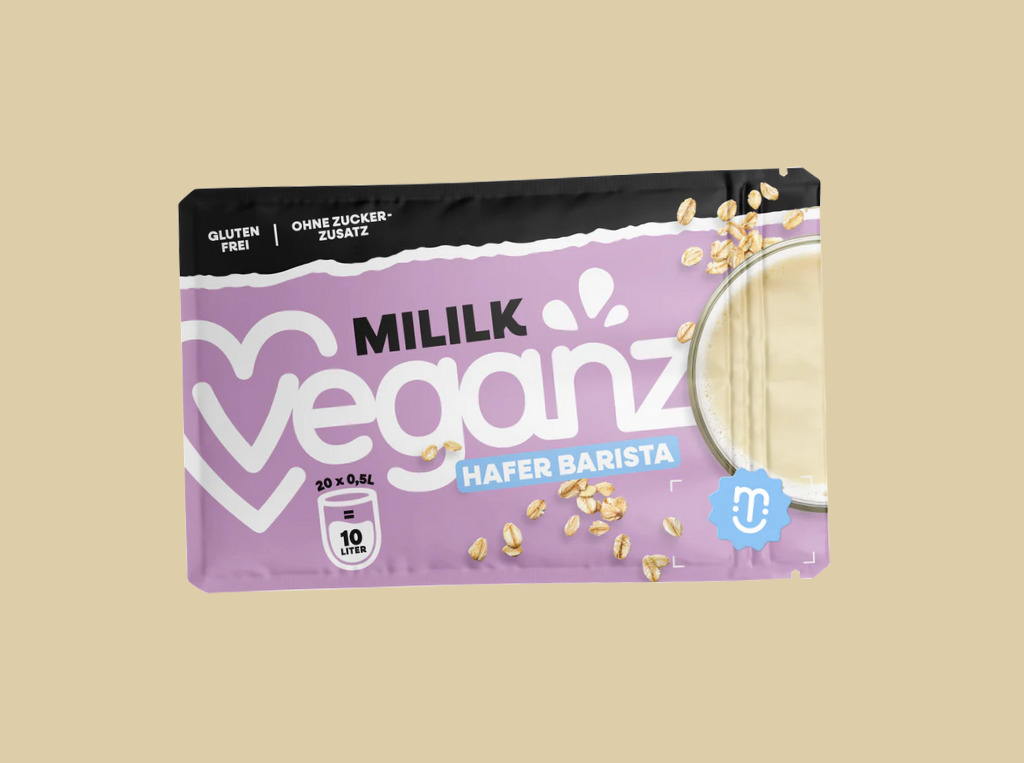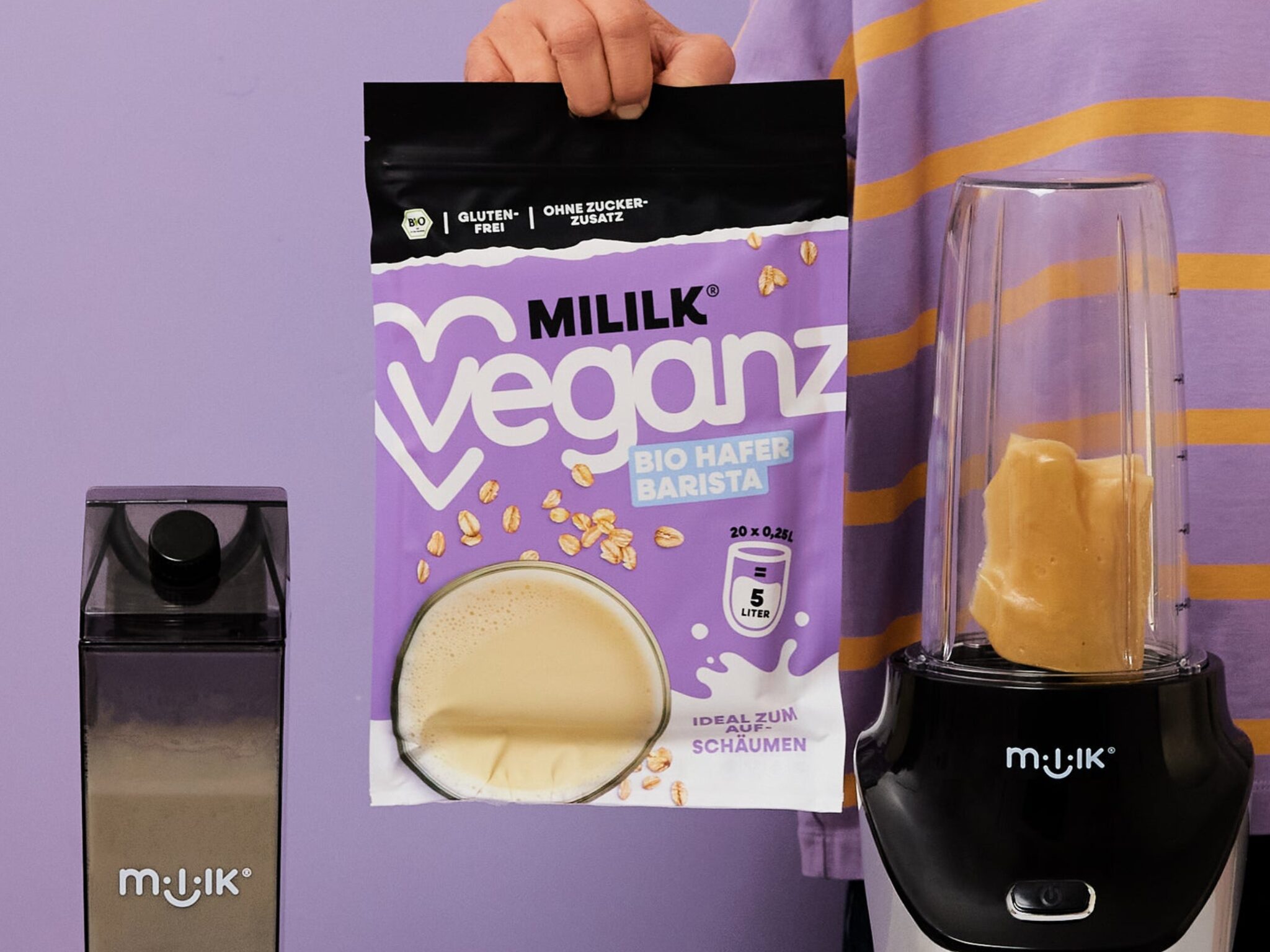Veganz Group Churns Up €10M in Funding to Expand Production of Its 2D-Printed Oat Milk
4 Mins Read
Germany’s Veganz Group has secured €10M ($10.9M) in financing to scale up production of Mililk, its 2D-printed oat milk, and its plant-based meat analogue Peas on Earth.
Veganz Group, a plant-based pioneer from Germany, has brought in €10M ($10.9M) in equity funding to expand production capacities for its plant-based milk and meat products.
The investment round, which brings its total raised to over $24M, came courtesy of a Securities Purchase Agreement with New York-based investor Global Corporate Finance LLC (GCF).
The contract enables a flexible and staggered use of the capital over a 30-month period, against the issuance of new shares at a valuation determined through the share price at the time of retrieval.
Veganz will utilise the capital to optimise and automate its production processes, increasing the manufacturing capacity of its Mililk sheets by fivefold. While the current version of the non-dairy milk is based on oats, the company indicated that it’s working on almond milk too. Additionally, Veganz will look to expand Peas on Earth, a new pea-protein-based meat analogue.
Tackling food, water and packaging waste

Veganz first licensed the 2D-printed milk technology from New York startup Vitiprints in 2022, and began working on making them scaleable. It has been selling the Mililk Oat Barista sheets since October 2023, featuring fermented and gluten-free oats, water, rapeseed oil, oat fibre, locust bean gum, sea salt, and bourbon vanilla.
The premise couldn’t be simpler. You pop a sheet in the blender, add water, blitz for 30 seconds, and voila! The benefits aren’t just in the shelf-stable nature or the ease of use (unless you don’t have a blender, of course), but also the sustainability aspect.
The company prints the oat mas directly after fermentation via a screen printing process on an industrial printer. By drying out the oat base into compact discs, Veganz requires 90% fewer materials for Mililk’s packaging (compared to the standard Tetra Paks used for standard oat milks), which in turn is 82% lighter in weight, helping save on transportation costs and emissions.
There’s also a customisation element at play: you can add as much or as little water as you like, resulting in a range of thicknesses from oat pastes to creams to milk. The barista-friendly oat milk sheets also help cut down on food waste (60% of which comes from households on a global level) and water usage, since you can make exactly the amount you need at a given time. Each sheet can make 250ml of oat milk.
The product plays into Germans’ demand for sustainable eating, with 68% wanting to eat in a way that’s kind to the planet. One survey shows that 27% of Germans want to consume more plant-based dairy in the next two years, which is no surprise given the country represents the largest market for vegan food in Europe.
And earlier this year, the German Nutrition Society updated its dietary guidelines to recommend limiting meat and dairy intake and eating more plant-based foods, with the latter making up at least 75% of domestic diets. It noted that plant-based milks are suitable as long as they’re fortified with sufficient amounts of calcium, vitamin B2 and iodine.
Veganz ramps up Mililk production to meet demand

While Mililk was originally only available via the D2C channel, it has since expanded into foodservice in Germany and Austria. And in April, it began supplying the oat milk sheets to German retail giant Rewe for its own-label brands Food For Future and Rewe Bio, which are now available nationwide in 3,700 Rewe stores and 2,000 Penny stores.
The latest equity investment comes two months after Veganz secured funding from the state of Brandenburg to expand production. And a month later, it announced plans to use around 1,000 sq m of its site in Ludwigsfeld to ramp up manufacturing of its Mililk products, enabling it to make 50,000 litres every day.
Veganz, which saw sales decline by 31% last year but cut its losses nearly in half, said the new funding round did not affect the capital increase subscribed by VeGreat LLC last September. The latter acquired shares in the German plant-based startup after the two announced a vertical farming partnership for protein crops in the UAE.
Mililk is among a burgeoning category of plant-based milks breaking away from the conventional liquid format to offer a product more sustainable, convenient, clean-label, or a combination of these. Mighty, Overherd and Blue Farm are all making powdered oat milks, JOI and Nooj produce nut pastes to be blended with water, while Goodmylk makes frozen concentrates.



